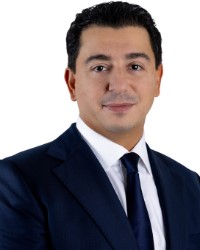Hotel Management & Transactions 2025
UAE
1. Legal Framework
1.1 Main Sources of Law
UAE
The UAE is a constitutional federation formed on 2 December 1971. It consists of the seven emirates of Abu Dhabi, Dubai, Sharjah, Ajman, Fujairah, Umm al-Quwain and Ras Al Khaimah.
As a federation, the UAE is governed by a Constitution that regulates the distribution of legislative powers between the federation and the individual emirates, among other things.
Under the UAE Constitution, federal laws have supremacy over the laws of individual emirates. However, individual emirates are permitted to enact their own legislation in areas other than those exclusively reserved to the federation.
Individual emirates can also legislate on matters where the federation has not yet exercised its legislative powers. Federal laws (with the exception of property law) generally govern civil and commercial transactions.
2. Sale and Purchase
2.1 Common Sale and Purchase Structures
Both share deals and asset deals are common hotel sale and purchase structures in the UAE.
2.2 Confidentiality of Terms
Hotel transactions and their terms (in particular, the parties and the sale and purchase price) are not public in the UAE.
2.3 Restrictions on Foreign Acquisition
Dubai
Non-UAE/GCC investors are permitted to own real property in “designated areas” such as Palm Jumeirah or Dubailand.
Abu Dhabi
Non-UAE investors can own real property in “investment zones” such as Yas Island and Saadiyat Island.
3. Hotel Ownership and Management
3.1 Common Hotel Ownership and Management Structures
UAE
Privately owned/independent hotels
Unlike branded hotels, privately owned/independent hotels are less common.
Hotel management agreements
Hotel management agreements (HMAs) are very prevalent especially among international and regional hotel chains.
Hotel lease agreements
Hotel lease agreements are not common.
Franchise agreements
Franchise agreements are less common. However, they are increasingly being discussed.
Privately owned structures
These are owned and operated by individuals or small companies and are not affiliated to major hotel chains. The owner has full control over operations, branding and management decisions.
HMAs
Under a HMA, the owner contracts a management company to operate the hotel on their behalf. The management company handles the day-to-day operations, staffing and marketing. Meanwhile, the owner retains ownership of the underlying asset and financial responsibility.
The owner will benefit from the experience and brand recognition of the management company but has less control over daily operations.
Hotel lease agreements
Under a hotel lease agreement, the owner of the hotel leases the property to an operator. The operator is responsible for all operational aspects and pays rent to the owner. The owner receives a steady rental income with minimal involvement in operations, while the operator assumes all operational risks and rewards.
Franchising agreements
Under a franchising agreement, the hotel owner operates the hotel under the brand and guidelines of a franchisor. The franchisee manages the hotel but must adhere to the franchisor’s standards and practices. The franchisor provides brand recognition, marketing support and operational guidelines. The franchisee benefits from the franchisor’s brand and support but pays franchise fees and complies with strict operational standards.
3.2 Hotel Management Agreements
UAE
HMAs are key documents that govern the definition of a hotel’s relevant ownership and operational roles. Their typical structure includes the following.
Term of appointment
The term of appointment species the duration of the agreement and conditions for renewal.
The standard contract period of HMAs is between 15 and 25 years for the initial term. Renewal terms are commercially negotiated between the parties.
Operator’s fees
The typical operator’s fee structure includes a base fee (which is a percentage of overall revenue) and an incentive fee (which is a percentage of gross operating profit).
Operator’s obligation and rights
The operator is required to operate a hotel to a specified standard. The operator is granted all rights reasonably necessary to achieve that obligation including rights to employ staff (on behalf of the owner) and determine maintenance obligations.
The operator is responsible for setting an operational and capital expenditure budget and generally has exclusive control over an operating hotel and accounts for the payment of various expenses, fees and returns.
The operator may have rights to provide marketing services to the hotel.
Operators will generally have the right to require upgrades to the hotel to reflect brand standards (as determined by the operator) although these may be time or scope limited.
HMAs often include a right of first refusal for the operator to purchase the hotel if it were to be sold.
A non-compete/area of protection clause is often negotiated as part of the deal. Non-disclosure agreements are also often negotiated as part of the deal.
Key money
This is less common in the UAE compared to Europe, the Middle East, and Africa or the Asia-Pacific.
Owner’s obligations
The owner is required to fund the hotel’s operation and upkeep, including payments such as insurance. They are also typically required to set aside funds for fixtures and fittings.
The owner is required to provide necessary funds for the hotel’s operation, including working capital and capital expenditure.
The owner must maintain adequate insurance coverage for the hotel.
The owner must ensure the hotel complies with all applicable laws, regulations and standards.
The owner will only generally have approval rights over significant decisions, such as major renovations. Rights in respect of operational expenditure and approval of budgets vary but operators are generally afforded broad rights to determine the correct management of the business.
The owner will commonly endeavour to procure a non-disturbance agreement before financing and ratio restricted financing obligations in HMAs.
In addition to the applicable laws, owners must ensure compliance with anti-money laundering and sanctions obligations.
The owner’s obligations will also often include a clause preventing them from exerting undue influence on the hotel operator.
Accounts
An account is established in the owner’s name, which is generally under the control of the operator. The owner typically provides initial working capital.
Revenue generated from hotel operations is deposited into designated accounts. Operating expenses, including payroll, utilities and supplies are paid from these accounts.
Profits are usually distributed according to the terms of the HMA with an agreed priority of payments out of those accounts.
Termination and default events
There are standard contractual provisions for termination due to insolvency or judgments levied against a party or for material breach.
Cross-termination provisions where other relevant agreements are terminated are common.
Owners can often exercise their right to termination for failure to satisfy the performance test or sell the hotel to a third party. This is often done after a specified period of time and/or payment of a break fee.
Performance test
There is often a standard of performance imposed on an operator. Failing to satisfy this standard may entitle the owner to terminate.
This commonly has two limbs: a revenue per available room (RevPAR) of the hotel compared to a consecutive set of hotels and a comparison of actual total revenue compared to budgeted total revenue.
Cure rights are normally afforded to an operator. However, the terms of the cure rights varies from transaction to transaction.
Dispute resolution procedures
HMAs will typically have terms addressing the best method of dispute resolution depending on the type of dispute. This will either be dispute fee-related or early termination.
If the dispute is fees or accounts-related, it may be referred to an expert. For other disputes it is common to provide for an escalation process, of good faith negotiations, mediation and then arbitration (often within the ADGM or the DIFC).
3.3 Hotel Lease Agreements
Hotel lease agreements are not prevalent in the region (see 3.1 Common Hotel Ownership and Management Structures).
Dubai
Short-term leases (ie, with a term of less than ten years) must be registered with the Real Estate Regulatory Agency on the Ejari system. Long-term leases (ie, those with a term of between ten years and 99 years) must be registered on the Real Estate Register of the Dubai Land Department.
Abu Dhabi
A short-term lease (ie, with a term of less than four years) must be registered on the Tawtheeq system. Any leasehold interests located within the ADGM must be registered with the ADGM Land Registrar.
The important clauses and provisions in commercial lease agreements are rent, duration, renewal right, and dispute resolution mechanisms.
3.4 Hotel Franchising Agreements
UAE
Franchising agreements involve a licensing of the brand’s name and operating systems to the franchisee, who is responsible for independently operating and managing the hotel.
Franchise agreements commonly require brand operators to pay royalties based on a percentage of sales or total revenue. They also usually provide the licensee with a right to inspect the hotel from time to time.
In the UAE, hotel franchising agreements are regulated by several different licensing and regulation requirements depending on the emirate.
4. Financing
4.1 Financing Options
In the UAE, the acquisition of real estate is usually financed by equity (ie, the buyers own funds) and/or bank financing.
4.2 Restrictions on Foreign Financing
Financiers are only permitted to lend in the UAE if they are incorporated locally and regulated by the UAE Central Bank.
5. Tax
5.1 Main Tax Implications
Sale and Purchase of a Hotel
The sale and purchase of a hotel in the UAE can be subject to corporate tax (which is calculated at 9% on the gain realised in the financial statements) and VAT (which is calculated at 5%). The corporate tax rate can be increased to 15% if the entity is subject to the domestic minimum top-up tax regime.
The corporate tax position could be reduced to 0% in specific circumstances (including where the property is commercial and located in a free zone and sold by a UAE free zone person).
The VAT position can be treated as a transfer of a going concern (and be outside the scope of VAT) subject to it satisfying the conditions of the UAE VAT framework.
The transfer of the underlying real estate asset is subject to a transfer fee of 4% in Dubai and 5% in the DIFC. The transfer fee is between 1% and 4% in Abu Dhabi and 2% in the ADGM.
Hotels must apply a range of extra fees such as the tourism dirham fee and municipality fees.
Entering Into a HMA
Income received by a UAE entity under a HMA will be subject to corporate tax (which is calculated at 9% (potentially increasing to 15% if the entity is subject to the domestic minimum top-up tax regime)).
VAT at a rate of 5% should be applied on the invoices raised under the HMA.
Tax Incentives
There are no corporate tax or VAT incentives available for hotel projects.
However, the Dubai government has set out an aim to waive the 10% municipality tax imposed on hotels to incentivise growth in the hospitality sector in the emirate.
6. Planning, Zoning and Licensing
6.1 Zoning
Hotels in the UAE must obtain the necessary licences and permits from local authorities and comply with building codes and standards to ensure compliance with the zoning requirements.
6.2 Building and Development Regulations
The requirements related to hotel construction or refurbishment frequently change. However, the general guidance in some key emirates is as follows.
Dubai
Hotels in Dubai must comply with the Dubai Building Code (“the Code”) and Development Authority regulations. The key building and development regulations for hotels in Dubai are as follows.
- Height ‒ there is no maximum building height in the Code and it varies depending on location.
- Density ‒ there are no specific regulations.
- Floor area ratio ‒ there are no specific regulations.
- Parking requirements ‒ the Code sets out specific parking requirements for hotels:
- there must be one bay for every five standard rooms and every two suite rooms; and
- there must be one bay per 50 square metres of hospitality space and 20 square metres of function space.
- Fire protection ‒ all fire protection products and systems must comply with the UAE Fire and Life Safety Code of Practice.
- Disability and accessibility ‒ the Code sets out a wide range of accessibility requirements including exits, pathways, access control barriers and protruding objects.
Abu Dhabi
The building and development regulations for hotels in Abu Dhabi are as follows.
- Height ‒ there is no maximum building height.
- Density ‒ there are no specific regulations.
- Floor area ratio ‒ development regulations will be established during the information provision process for these types of regulations and these will be based on the facility type, plot scale and the surrounding urban environment.
- Parking requirements ‒ these are regulated by the Abu Dhabi Parking Standards.
- Fire protection ‒ buildings must follow the UAE Fire and Life Safety Code of Practice.
- Disability and accessibility ‒ the Code sets out a wide range of accessibility requirements including exits, pathways, access control barriers and protruding objects.
Ras Al Khaimah
The building and development regulations for hotels in Ras Al Khaimah are as follows.
- Height ‒ the ground floor level of buildings must not be more than 1.20 metres above the approved design level. The height of the roof parapet in buildings should be between 1 metre and 1.80 metres after the final finishing. Architectural facades are exempt from these requirements.
- Density ‒ there are no specific regulations.
- Floor area ratio ‒ this is regulated by the competent department of the municipality.
- Parking requirements ‒ these are regulated by the competent department of the municipality.
- Fire protection ‒ all fire protection products and systems must comply with the UAE Fire and Life Safety Code of Practice.
- Disability and accessibility ‒ as a minimum, hotels must provide one hotel room on the first floor if there are less than 100 rooms and two rooms if there are more than 100 rooms. These rooms must be fully equipped in line with the international standards approved for disabled people or those with accessibility needs.
6.3 Building Permits
The requirements for building permits for hotel refurbishment or new construction in the UAE frequently change. However, an application will need to be lodged with the Department of Tourism and Commerce Marketing, which is responsible for providing written approval for the construction of a new hotel or the conversion of an existing one.
The average duration of the procedure varies depending on the complexity of the project and the specific emirate.
6.4 Objections to Building Permits
There is no formal process for objecting to a building permit in the UAE.
6.5 Restrictions on Conversion
Converting a hotel to another use in the UAE requires a change in zoning classification and this requires a formal application to be made. Any conversion must comply with local building standards and must be approved by the relevant authorities.
6.6 Heritage Protection
The UAE’s National Policy for Preserving the Modern Architectural Heritage of the UAE includes significant hotel landmarks. It also ensures that heritage sites are maintained and preserved for future generations. It is not permitted to demolish, remove or modify buildings and architectural elements of historical value which are considered as heritage.
6.7 Operating Licences
Dubai
To operate a hotel in the emirate, a company must be registered with the Department of Economy and Tourism. The Department of Tourism and Commerce Marketing’s clearance is required once registration has been completed.
The Department of Tourism and Commerce Marketing grants a hotel licence once it has completed inspections.
Licences are provided in the DIFC once the hotel has been registered and has had a site inspection.
Abu Dhabi
Hotel licences are awarded by the Abu Dhabi Tourism Authority.
The ADGM Registration Authority has the right to issue commercial licences to hotels operating in the ADGM.
Ras Al Khaimah
Hotel licences are given once hotels are registered with the hotel classification system and all services offered have been officially classified.
6.8 Environmental Compliance
UAE
The Department of Tourism and Commerce Marketing requires sustainability standards pertaining to energy and water efficiency to be upheld. This specifically requires implementing energy-saving measures and water conservation measures. They also require measures to reduce carbon emissions to be implemented.
Dubai
The Dubai Department of Economy and Tourism has announced the launch of the Dubai Sustainable Tourism Stamp. This is a new sustainability initiative which seeks to recognise hotels who adhere to the highest sustainability requirements. These requirements cover a wide range of areas, including energy efficiency, water conservation, waste management and staff engagement.
The DIFC has made commitments to sustainability initiatives which are considered when approving development plans.
Abu Dhabi
Abu Dhabi has issued a series of Sustainability Guidelines which focus on water management, energy, waste and transportation.
The ADGM has made commitments to sustainability initiatives which are considered when approving development plans.
Ras Al Khaimah
The Ras Al Khaimah Tourism Development Authority (RAKTDA) has issued guidelines and protocols under a “Green Hotel Rating” initiative to regulate sustainability standards and work.
7. Employment
7.1 Employment Law Requirements
In the UAE, there are specific employment law requirements which relate to hotel transactions. The applicable law will depend on where the hotel is based. Federal Decree-Law No 33 of 2021 Regarding the Regulation of Employment Relationships and its Amendments (the “UAE Labour Law”) is applicable onshore in the UAE and in most of its free zones. It is also applicable to the employment aspects of hotel transactions. However, where the hotel is based in the DIFC or the ADGM different employment laws will apply.
- Transfer of employment – where employees are required to transfer from one entity to another in the context of a hotel transaction, their transfer will be effected by way of termination and rehire. New employment contracts will have to be entered into with the new employer and new visas and work permits obtained. The termination of the employee’s employment with their current employment will, strictly speaking, trigger the payment of termination payments, including end of service gratuities. In practice, however, it is typically possible to roll over and defer these payments.
- Harmonisation of benefits – the provisions of the UAE Labour Law will have to be considered when implementing any harmonisation of benefits. Any employment contract changes will require the express consent of the employee.
- Share sale – in a share sale, the existing contracts remain in place and are considered continuous. The new employer will be responsible for previous liabilities together with ensuring compliance with the UAE Labour Law and contractual obligations going forward.
- Owner/operator model – in the UAE it is common for employees to be directly employed by the hotel owner and to be managed by the hotel operator. Parties to a transaction should be aware of this and employment-related documentation structured accordingly.
The commentary and information are accurate and correct as at the date of publishing and are subject to change.
Baker McKenzie
Al Fattan Currency House
Tower 2
Level 16
Dubai International Financial Centre
PO Box 507176
Dubai
UAE
+971 4 542 1900
+971 4 542 1902
www.bakermckenzie.com/
Trends and Developments
Introduction
The UAE has firmly established itself as a global tourism powerhouse, and 2025 has further cemented this reputation. After welcoming over 18 million visitors in Dubai alone in 2024 ‒ a 9% year-on-year leap and a new record for the emirate ‒ the nation has leveraged its visionary leadership, infrastructure, and strategic mega-events to drive unprecedented growth in its hospitality sector.
Dubai’s momentum has accelerated further in 2025. In the first five months alone, the emirate welcomed 8 million visitors, resulting in peak hotel occupancy of over 80%. As of early 2025, Dubai’s hotel construction pipeline comprises over 50 projects totalling approximately 15,000 rooms, while the wider UAE has 16,000 rooms under construction. According to Cavendish Maxwell, Dubai is expected to add over 11,000 rooms by 2027, with over 4,600 slated for completion this year, underscoring sustained investor confidence in the market’s robust fundamentals.
From Dubai’s continued dominance in luxury and business tourism to Ras Al Khaimah’s bold emergence as a leisure and gaming destination, the UAE’s hospitality landscape has evolved rapidly in 2025. This dynamic environment has sparked renewed investor interest, with several high-profile hotel transactions either closing or being announced this year.
This article explores the most significant deals, examines new market and legal trends, and analyses how owners and operators are navigating an increasingly complex and competitive environment.
Major 2025 Transactions
Radisson Blu Hotel, Dubai Media City
In January 2025, Select Group acquired the Radisson Blu Hotel in Dubai Media City for AED200 million (approximately USD54 million). The property, strategically positioned to serve Dubai’s media and technology sectors, presents a prime repositioning opportunity. The buyer plans a comprehensive refurbishment programme aimed at reimagining F&B offerings, enhancing wellness and business facilities, and updating guest rooms to meet evolving expectations of business and lifestyle travellers. The deal underscores investors’ increasing focus on value-add strategies in prime urban locations.
Fairmont The Palm
One of the most significant luxury transactions this year has been the proposed sale of Fairmont The Palm to Kuwait-based Arzan Financial Group for USD325 million. The beachfront property’s strong performance metrics and iconic brand positioning have driven strong investor demand. The transaction reflects a continued appetite for trophy assets, particularly those on Palm Jumeirah, which continues to command premium rates and occupancy levels among leisure and high net worth traveller segments.
Wynn Al Marjan Island, Ras Al Khaimah
Perhaps the most groundbreaking hospitality project of 2025 is Wynn Resorts’ integrated resort on Ras Al Khaimah’s Al Marjan Island, which secured USD2.4 billion in financing this year. Predicted to open in 2027, this project will be the UAE’s first integrated resort with a gaming component ‒ a major policy shift that could transform the regional tourism landscape.
The project aims to include a luxury hotel, high-end F&B concepts, entertainment venues, and convention facilities, in addition to gaming amenities. The introduction of a casino is expected to drive substantial new international demand and position Ras Al Khaimah as a competitive alternative to other regional leisure destinations.
Ardee Al Marjan Island
Ardee Developments, now the second-largest developer on Al Marjan Island, recently unveiled its flagship project: Ardee Al Marjan Island. Spanning 2.5 million square feet, this mixed-use, multi-billion-dirham masterplan integrates residential, hospitality, retail, leisure, and entertainment across 7.8 kilometres of pristine beachfront. The first phase, Fairmont Residences Al Marjan Island, will include 519 branded residences, four signature beachfront villas, and a 250-key Fairmont hotel, offering a transformative coastal lifestyle experience. Strategically positioned on Al Marjan Island, the development sits adjacent to Wynn Al Marjan Island.
Trump International Hotel & Tower, Palm Jumeirah
Announced in early 2025, Trump International Hotel & Tower, developed in partnership with Dar Global, will feature an 80-storey mixed-use tower comprising a luxury hotel and branded residences on Palm Jumeirah.
This project exemplifies the trend of integrating branded residential units with hospitality offerings, appealing to global investors seeking exclusive addresses, service standards, and strong brand equity. The transaction also raises complex legal considerations around joint ownership, brand licensing, and mixed-use operational governance.
Secondary Market Momentum
Beyond these headline deals, the UAE is witnessing increased investor interest in secondary markets, particularly in Ras Al Khaimah, Sharjah, and Fujairah. Boutique eco-resorts and wellness-focused hospitality developments are being planned to tap into rising demand for experiential and nature-based travel.
Ras Al Khaimah: adventure and gaming ambitions
Ras Al Khaimah (RAK) has emerged as the clear leader among the UAE’s secondary hospitality markets, driven by a clear government vision to diversify beyond sun-and-sand tourism into adventure, wellness, and (most notably) gaming. With the groundbreaking Wynn Al Marjan Island integrated resort project, RAK is positioning itself as the first emirate to introduce regulated gaming, fundamentally reshaping its tourism profile and attracting a new class of international visitors.
Beyond the landmark Wynn Resort, Ras Al Khaimah’s tourism strategy is anchored in its natural assets ‒ most notably the Jebel Jais mountain range, expansive deserts, and 64 kilometres of coastline. In 2025, the emirate accelerated its adventure tourism agenda with new high-altitude wellness retreats, expanded zipline infrastructure, and sustainable mountain lodges, reinforcing its position as the UAE’s leader in nature-based tourism.
This surge in development has attracted investors seeking lower land acquisition costs and the opportunity to shape a relatively untapped market. A prime example is Ardee Al Marjan Island, which sits adjacent to Wynn Al Marjan Island. Together, these projects are reshaping Ras Al Khaimah into a global hub for luxury tourism, entertainment, and real estate investment.
However, hospitality investors should be aware that they may need to navigate a nascent gaming regulatory framework in RAK and evolving local real estate laws. In addition, the heavy reliance on public-private partnerships to develop supporting infrastructure introduces contractual complexities and additional risks related to long-term concessions and revenue sharing.
Sharjah: cultural heritage and eco-tourism
Sharjah has firmly established itself as the UAE’s cultural and educational capital, and its hospitality sector is increasingly reflecting this identity. The emirate is focusing on authentic experiences that highlight its rich history, traditional architecture, and natural landscapes.
In 2025, new boutique hotels have been announced in the heart of Sharjah heritage district, including adaptive reuse of traditional houses into heritage inns, as well as a luxury desert retreat near Mleiha Archaeological Centre. Sharjah’s projects also align with its strong environmental sustainability ethos, with developments in Kalba’s mangrove reserves and eco-lodges along its eastern coastline.
These projects appeal to a growing segment of travellers seeking immersive cultural and eco-centric experiences rather than purely luxury or resort-style stays. From a legal perspective, investors and operators in Sharjah must adhere to stricter cultural preservation guidelines. The emirate’s authorities actively oversee design approvals and operational standards to ensure alignment with Sharjah’s cultural vision, which can create longer lead times but ultimately enhances destination integrity and market differentiation.
In the branded residences sector, owners and operators will also now need to ensure compliance with Sharjah’s newly introduced regulations on development projects and use of escrow accounts issued in late 2024 and amended further this year.
Fujairah: marine and coastal experiences
Fujairah’s hospitality strategy is focused on leveraging its pristine coastline, mountain backdrops, and reputation as a diving haven. In 2025, new announcements have introduced boutique beachfront resorts and dive-focused hospitality offerings, including high-end lodges that integrate diving academies and marine conservation programmes.
Fujairah offers a less commercialised alternative to Dubai’s and Abu Dhabi’s bustling beachfront scenes, appealing to niche luxury markets that prioritise privacy, nature, and wellness. The emirate’s strategic plan includes significant investment in supporting marina infrastructure and eco-friendly coastal developments to maintain its environmental appeal.
From a legal and operational standpoint, developers in Fujairah need to adhere to unique coastal zoning regulations, heightened environmental licensing requirements, and foreign ownership limitations. As with many developing regions, successful projects often depend on robust collaboration with local authorities and community stakeholders to secure necessary permits and to integrate projects into broader destination planning initiatives.
Legal and investment considerations
While the emirates offer lower land costs, unique positioning, and first-mover branding opportunities, they also pose heightened legal and operational complexities. Investors should conduct detailed due diligence on land title regimes, foreign ownership restrictions and local development control regulations.
Additionally, these markets often require comprehensive contractual frameworks with public sector stakeholders, including infrastructure development agreements and cultural preservation commitments. The relative lack of established legal precedents in these emirates, compared to Dubai and Abu Dhabi, further emphasises the importance of proactive risk allocation and thorough contract negotiation.
Summary
Together, Ras Al Khaimah, Sharjah, and Fujairah illustrate a growing diversification of the UAE’s hospitality market, driven by emirate-level differentiation strategies. While Dubai and Abu Dhabi will continue to dominate in terms of scale and transaction volume, these markets present compelling opportunities for investors and operators ready to engage in more tailored, experience-led development strategies ‒ provided they are prepared to navigate the accompanying legal and regulatory complexities.
Key Market Trends Shaping Investment Strategies
ESG at the forefront
ESG factors have evolved from optional marketing points to essential deal and operational criteria. Investors and operators are prioritising properties with green certifications and are allocating capital towards retrofitting older assets to meet sustainability benchmarks.
In the Radisson Blu Media City transaction, for instance, Select Group’s refurbishment plans include installing energy-efficient systems and improving water management practices. These upgrades are not only driven by investor preference but also by increasingly eco-conscious guests and anticipated future regulatory pressures.
Branded residences and hybrid hospitality models
2025 has seen the continued rise of branded residences, often integrated with hotel amenities. Projects like Trump Tower demonstrate that buyers are willing to pay substantial premiums for units tied to internationally recognised hospitality brands.
Such hybrid models enable developers to monetise early sales proceeds while creating ongoing revenue through shared services and branding fees. However, they also introduce operational complexities, including alignment of residential owner rights with hotel operations, governance frameworks, and compliance with local jointly owned property laws.
Alternative hospitality segments
Lifestyle hotels, wellness retreats, and hybrid work-leisure (“bleisure”) properties are gaining traction. Developers and operators are increasingly designing offerings to target digital nomads and long-stay guests, as well as niche wellness-focused clientele.
The growing popularity of these formats is prompting a re-evaluation of standard hotel operational models, encouraging greater flexibility in space usage, and driving interest in soft branding and boutique concepts over traditional, rigid brand standards.
Geographic diversification
While Dubai and Abu Dhabi remain the primary magnets for large-scale hospitality investment, Ras Al Khaimah’s emergence ‒ highlighted by the Wynn project ‒ signals a broader geographic shift. Investors are exploring lower-entry-cost markets and first-mover opportunities in the northern emirates.
Sharjah’s focus on cultural tourism and Fujairah’s move into eco-tourism and dive resorts illustrate how the emirates are carving out differentiated hospitality identities to attract diversified visitor segments.
Investments in hotel rooms
In 2025, there is a further trend (which has been gaining traction over the last few years) of developers selling fully furnished hotel rooms in a hotel project to individuals to be purchased purely for investment reasons. This is similar to, albeit different from, a branded residences concept.
The rooms, which form part of the hotel component, are sold with a mandatory rental programme, with full control of the unit being retained by the developer. The owner can usually use the room for short periods during the year, but generally purchasers are not permitted to permanently reside in the room. The hotel is operated in the same way as any other hotel with paying guests – usually by an international operator through a hotel management agreement.
Similar to branded residences, this model has increased in popularity as it provides the developer with an initial cash injection to fund the hotel development. For investors, this provides the opportunity to invest in the UAE’s booming luxury hotel market with the potential of capital appreciation, and they can earn a share of the revenue generated from the room without having to manage or maintain it.
One of the more intricate aspects of investing in hotel room units is the complexity of title structuring. Unlike traditional real estate transactions, these investments often involve hybrid ownership models that combine elements of freehold, leasehold, and contractual rights tied to a rental pool. Investors must carefully assess the nature of the title being offered, understand restrictions on personal use and resale, and recognise that operational control typically remains with the developer or hotel operator. Additionally, ensuring compliance with evolving real estate and hospitality regulations, particularly in markets like the UAE, is essential to safeguard the investment and avoid legal or operational pitfalls.
Legal and Regulatory Developments
Transaction structuring
In the context of greenfield investments, Musataha agreements are predominantly used where freehold title is not available. Investors typically acquire these rights (whether freehold or Musataha) through corporate entities, which provide a flexible and compliant structure for holding and managing the asset. Musataha agreements grant the right to develop and use land for up to 50 years (renewable), offering substantial autonomy to the holder. However, they require careful drafting to ensure long-term value preservation and to provide adequate protection of investor rights.
For secondary transactions, the preferred structure is typically the purchase of shares in the entity that owns the hotel, rather than a direct acquisition of the real estate asset. This approach allows buyers to avoid the complexities of obtaining new operational licences, which are generally required in asset transfers. More importantly, it helps prevent potential disruptions, such as temporary hotel closures, during the licensing transition ‒ events that could lead to significant revenue loss. However, in most emirates, land transfer fees are still triggered upon indirect changes in ownership through equity transactions, and these costs should be factored into the overall deal structure.
Across both greenfield and secondary transactions, Opco/Propco structures have become the prevailing trend for hotel investments. This model separates the operating company (Opco), which runs the hotel business, from the property company (Propco), which owns the underlying real estate. Such structuring enhances operational flexibility, facilitates financing, and allows investors to tailor risk and return profiles more effectively.
Joint ownership regimes
Branded residence developments must comply with the UAE’s jointly owned property laws. Developers face challenges aligning residential and hotel operational requirements, particularly with regard to shared facilities, service charge allocations, and usage rights.
Operators and developers must carefully craft joint ownership declarations, management statements, and association by-laws to mitigate future disputes and clearly define responsibilities. These legal documents must balance operator control over brand standards with owners’ rights to use and manage their units.
Off-plan sale compliance
For projects involving residential sales (eg, branded residences), developers must comply with strict off-plan sale regulations, including opening escrow accounts, securing project registration with RERA (if in Dubai), and providing full disclosure on design, specifications, and delivery timelines. Recent enforcement trends have shown regulators taking a more proactive approach to compliance, with increased scrutiny on developer cash flows, milestone adherence, and marketing representations.
Financing and Sharia compliance
Many regional institutional investors continue to require Sharia-compliant structures, influencing financing arrangements and capital stack composition. Islamic financing tools, such as ijara (leasing arrangements) and sukuk (Islamic bonds), are increasingly used to support hospitality developments, especially where cross-border capital is involved or where the investor base includes Islamic financial institutions.
These requirements also extend beyond financial structuring to operational considerations, most notably the “dry hotel” model, which excludes the sale or service of alcohol. In many cases, Sharia-compliant investors mandate dry operations to align with religious principles. This can affect the hotel’s positioning, target market, and revenue model, especially in the UAE where alcohol sales contribute significantly to F&B income. Developers and operators must carefully assess the trade-offs, including potential impacts on brand selection, guest experience, and profitability, while also exploring alternative revenue streams to offset the absence of alcohol-related income.
Gaming regulation and integrated resorts
The introduction of gaming through the Wynn Al Marjan Island project marks a significant legal milestone. While federal regulations are still being finalised, Ras Al Khaimah established the Department of Entertainment and Gaming Regulation in 2022, taking the lead on local oversight. This was followed by the formation of the General Commercial Gaming Regulatory Authority at the federal level in 2023, tasked with regulating licensing, operational standards, and commercial gaming activities nationwide. Accordingly, future investors and operators in integrated resorts will need to carefully consider compliance frameworks, licensing timelines, and the potential reputational and regulatory risks associated with gaming activities.
Dubai’s hospitality permitting authority
Dubai’s hospitality sector has undergone a significant regulatory shift following the reorganisation of government departments overseeing tourism and economic activities. Historically, hospitality permits (including hotel, resort, and holiday home licenses) were issued and managed by the Department of Tourism and Commerce Marketing (DTCM).
In 2021, the government of Dubai announced the integration of DTCM with the Department of Economic Development (DED) to form the Department of Economy and Tourism (DET). By 2023, DET had assumed full responsibility for all hospitality permits and related regulatory functions.
This consolidation aims to create a more unified, business-friendly approach to licensing and tourism oversight, aligning with Dubai’s broader vision to strengthen its global competitiveness and streamline government services. Under DET, operators now manage their hospitality permits through centralised digital portals, which also integrate economic licensing and compliance reporting.
Key implications for operators include:
- a single authority for all tourism and economic licensing matters, simplifying administrative processes;
- enhanced compliance monitoring, with updated requirements for guest registration, safety standards, and sustainability initiatives; and
- stricter penalties for unlicensed operations and non-compliance, reflecting DET’s focus on service quality and consumer protection.
This restructuring represents a strategic shift towards greater efficiency and transparency in Dubai’s hospitality sector, and reinforces the emirate’s commitment to maintaining its reputation as a leading global tourism hub.
Operator and Management Agreement Trends
Hotel management agreements (HMAs) continue to evolve rapidly, reflecting a rebalancing of power between owners and operators.
Performance tests and termination rights
Owners are increasingly demanding clear and enforceable performance tests in hotel management agreements. Termination triggers, once rarely exercised, are now frequently negotiated with measurable RevPAR or GOP targets and defined cure periods.
Shorter initial terms
The traditional 20-year to 30-year initial HMA terms are increasingly being replaced with shorter 10-year to 15-year periods, often with optional extensions. This shift is largely driven by growing competition among hotel operators, who are more willing to accept shorter terms to secure prime assets and strategic locations. For owners, this trend offers greater flexibility to adapt branding, renegotiate terms, or reposition the asset in response to evolving market conditions, without being locked into long-term commitments that may no longer align with their investment strategy.
Increased owner oversight
Owners now require more control over budgeting, staffing, and major capital expenditure. ESG obligations are also being formalised within HMAs, with operators required to meet specific sustainability targets and report on compliance.
Franchise and hybrid models
There is a notable shift toward franchise and hybrid operating structures, particularly among luxury lifestyle brands. These arrangements provide owners with brand leverage and marketing power while allowing greater operational independence and control over profit margins.
Outlook for H2 2025 and Beyond
Looking ahead, the UAE hospitality market is expected to remain on a strong growth trajectory, albeit with greater sophistication and nuance.
The influx of high-profile integrated resorts, growing investor appetite for experiential and wellness-led properties, and increased focus on ESG compliance will continue to drive capital deployment.
Meanwhile, the evolution of operator relationships and legal frameworks around branded residences and gaming operations will introduce new complexities, requiring careful legal and commercial structuring.
As Ras Al Khaimah, Sharjah, and Fujairah pursue differentiated tourism approaches, the overall UAE market will become more segmented, offering targeted opportunities across various visitor segments and investment strategies.
Conclusion
The UAE hospitality sector in 2025 is defined by its dynamic nature, scale, and willingness to innovate. Major transactions ‒ such as the Fairmont The Palm sale, Radisson Blu repositioning, Wynn’s integrated resort financing, and the launch of Trump Tower ‒ exemplify the depth and diversity of investor interest.
However, these opportunities come with new layers of legal, operational, and regulatory complexity. From ESG-linked refurbishment obligations and joint ownership structuring to gaming regulation and evolving hotel management agreements, stakeholders must navigate a fast-evolving legal landscape to protect value and ensure compliance.
King & Spalding LLP
Al Fattan Currency House
Tower 2, Level 24
Dubai International Financial Centre
P.O. Box 506547
Dubai
United Arab Emirates
+971 4 377 9900
+971 4 377 9955
MAlRifai@kslaw.com www.kslaw.com







